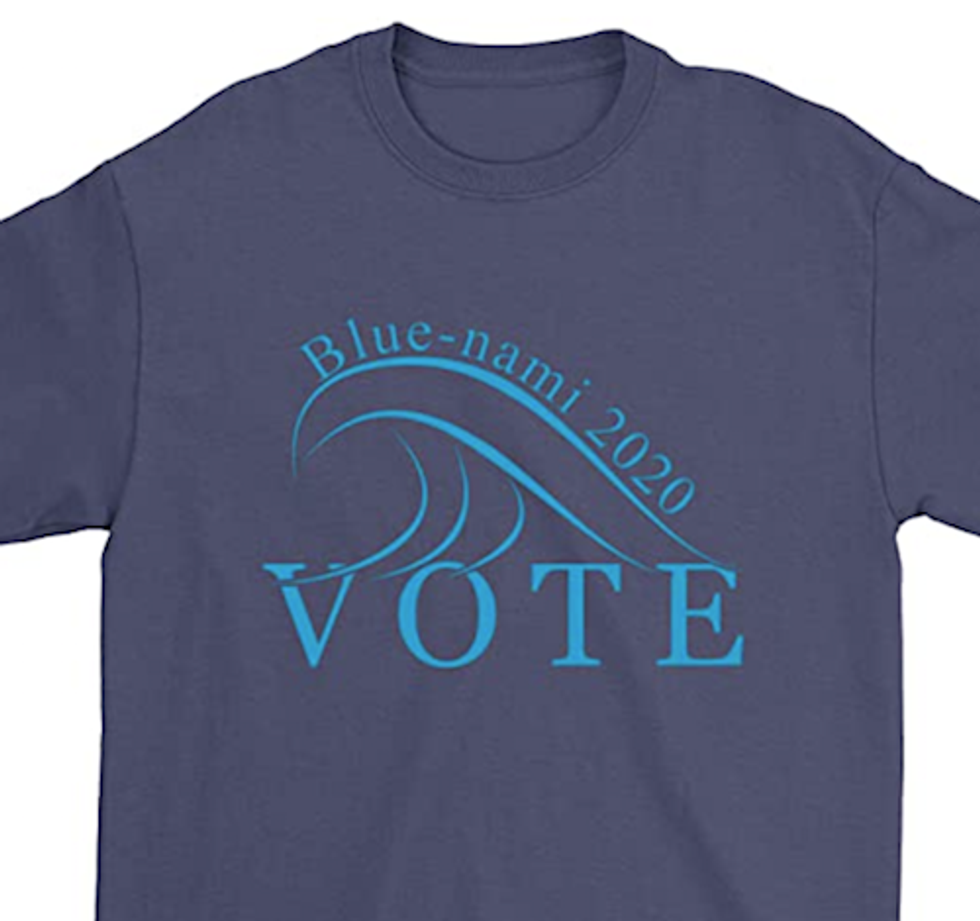In 2016 when Democrat Hillary Rodham Clinton garnered 2,868,686 more votes than Republican Donald Trump, a handful of key states handed Trump the victory with their electoral votes.
But are those states still fans of Trump four years later?
Has the Trump administration's handling of the viral pandemic changed any voters minds?
Hart Research Associates asked potential voters in Wisconsin and Michigan that question. Trump won both states in 2016 by less than one percentage point.
The pollsters asked a variety of questions, but President Trump did not fare well with the voters of these states in any of them. His approval was just 46 percent compared to a disapproval rate of 54 percent.
Whether that sentiment was driven solely by the Trump administrations troubled pandemic response or not is unclear. But when it came to assessing that aspect of Trump's presidency, his approval ratings dropped even further.
When asked about the seriousness of the pandemic, 75 percent felt it was a crisis and 20 percent felt it was a very serious problem. As for their home state assessments, 62 percent felt the pandemic was already a crisis at home and 30 percent felt it would become one.
Given 95 percent and 92 percent of voters in Michigan and Wisconsin were deeply concerned about the viral pathogen spreading across the globe, Trump's response was likely to garner a great deal of attention.
While Trump got a net approval rating—including those who fully approved and those who only somewhat approved—of 51 percent for his handling of the pandemic, 38 percent said his response made them less likely to vote for him. And Trump's approval number was dwarfed by the approval received by Michigan and Wisconsin's Democratic governors.
Governor Gretchen Whitmer of Michigan and Governor Tony Evers of Wisconsin received an 80 percent approval rating.
Both Whitmer and Evers took office as a result of the 2018 midterm election. Both Democrats also replaced a Republican governor.
Evers defeated incumbent and Trump ally Scott Walker. Whitmer faced Michigan's Republican Attorney General after GOP Governor Rick Snyder was term limited out of office. President Trump endorsed and campaigned for both Republicans that Evers and Whitmer defeated.
In addition to better approval numbers, Hart Research asked voters to put the work of their Democratic governors head to head with President Trump.

They asked:
"Who do you trust more to provide accurate information about the [pandemic] and how well needs are being met in your state?"
In Michigan, 55 percent of voters trusted Governor Whitmer to only 28 percent who trusted Trump.
In Wisconsin, 51 percent trusted Governor Evers more while 30 percent trusted Trump.
People pointed out the things that eroded that trust.
The World Health Organization declared a global pandemic on January 30. On that date, confirmed cases in the United States were in single digits.
However a national response was stalled for almost two months while denials were issued and the pandemic was labeled a hoax. If Michigan and Wisconsin are any indication, voters will remember in November.
As of Tuesday, April 14, the 2020 presidential election is 202 days away.
Are you registered to vote? Do you know your state's important deadlines, for registering and requesting an absentee ballot? You can get that information here.
This shirt is available here.









 The Benny Show
The Benny Show





 @neilforreal/Bluesky
@neilforreal/Bluesky @savannahcat/Bluesky
@savannahcat/Bluesky @qadishtujessica.inanna.app
@qadishtujessica.inanna.app @v-ron/Bluesky
@v-ron/Bluesky @nelnelnellie/Bluesky
@nelnelnellie/Bluesky @beatlenumber9/Bluesky
@beatlenumber9/Bluesky @pinkzombierose/Bluesky
@pinkzombierose/Bluesky
 @theunobsolete/TikTok
@theunobsolete/TikTok @theunobsolete/TikTok
@theunobsolete/TikTok @theunobsolete/TikTok
@theunobsolete/TikTok @theunobsolete/TikTok
@theunobsolete/TikTok @theunobsolete/TikTok
@theunobsolete/TikTok @theunobsolete/TikTok
@theunobsolete/TikTok @theunobsolete/TikTok
@theunobsolete/TikTok @theunobsolete/TikTok
@theunobsolete/TikTok @theunobsolete/TikTok
@theunobsolete/TikTok @theunobsolete/TikTok
@theunobsolete/TikTok @theunobsolete/TikTok
@theunobsolete/TikTok @theunobsolete/TikTok
@theunobsolete/TikTok @theunobsolete/TikTok
@theunobsolete/TikTok @theunobsolete/TikTok
@theunobsolete/TikTok @theunobsolete/TikTok
@theunobsolete/TikTok @theunobsolete/TikTok
@theunobsolete/TikTok @theunobsolete/TikTok
@theunobsolete/TikTok
 @laysuperstar/TikTok
@laysuperstar/TikTok @laysuperstar/TikTok
@laysuperstar/TikTok @laysuperstar/TikTok
@laysuperstar/TikTok @laysuperstar/TikTok
@laysuperstar/TikTok @laysuperstar/TikTok
@laysuperstar/TikTok @laysuperstar/TikTok
@laysuperstar/TikTok @laysuperstar/TikTok
@laysuperstar/TikTok @laysuperstar/TikTok
@laysuperstar/TikTok @laysuperstar/TikTok
@laysuperstar/TikTok @laysuperstar/TikTok
@laysuperstar/TikTok @laysuperstar/TikTok
@laysuperstar/TikTok @laysuperstar/TikTok
@laysuperstar/TikTok @laysuperstar/TikTok
@laysuperstar/TikTok @laysuperstar/TikTok
@laysuperstar/TikTok @laysuperstar/TikTok
@laysuperstar/TikTok